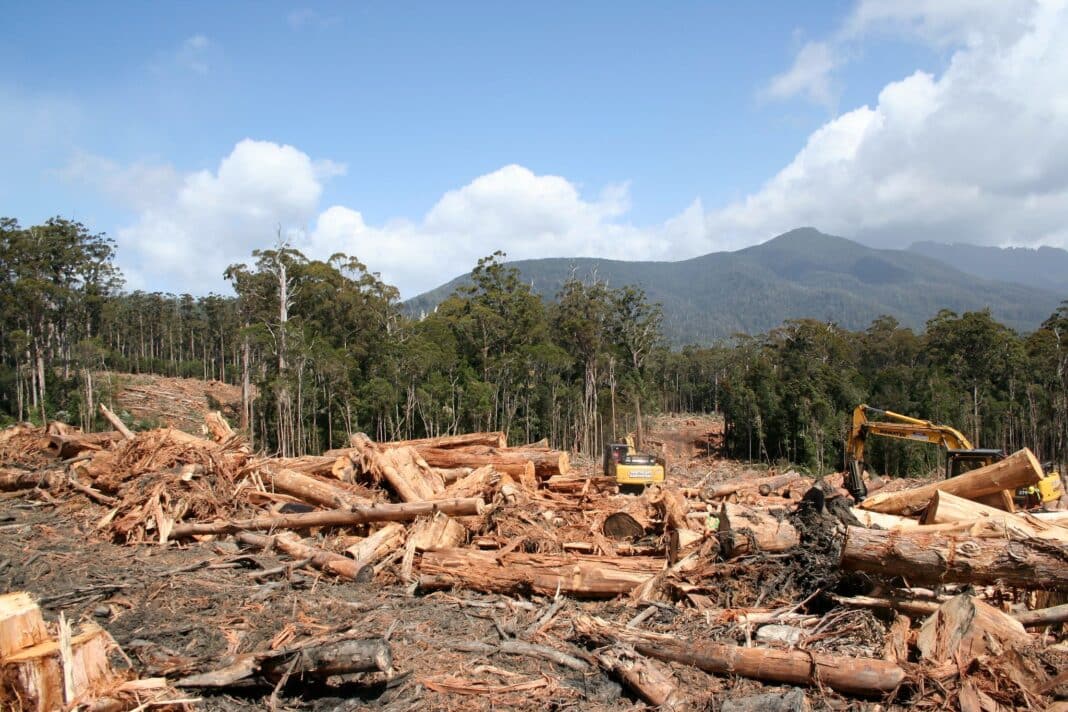Kirsha Kaechele has described the three-day MONA Forest Economics Congress as “a raging success” and hopes it will end the forest wars between native forest harvesters and environmentalists.
Ms Kaechele’s “dream scenario” is for a “roadmap” to be developed for valuing forests and a list of recommendations that could be provided to the state government.
She also disputed claims by Tasmanian Minister for Resources Felix Ellis, who withdrew from the Congress after claiming “activists” were not acting in good faith.
Ms Kaechele told the Sunday Mercury that his characterisation of the event “would have had a completely different experience” if he had been there in person.
“There were so many uncomfortable moments, but people behaved so well; they were good “to each other, they behaved like adults, and they listened to things they disagreed with,” she said.
Among the event’s highlights, according to Ms Kaechele, was the presentation of a First Nations-led approach to native forest management.
More than 100 delegates from across the world attended the Congress, with “several Tasmanian politicians from Labor, the Independents and Greens attending the final day.
Last week, Wood Central reported that FSC Chair Jon Dee was one of the attendees, along with Bob Bown Foundation Organiser Jenny Weber and Tasmanian Forest Products Association CEO Nick Steel.
According to Ms Weber, environmental groups were disappointed that the Congress was industry-dominated.
“We were talking about monetising carbon in the forests, logging native forests, and I don’t think a Forest Economics Congress needed to be void of the ecology and climate facts,” she said.
Conservationists who attended the Congress published a communique on Friday, calling on the state and federal governments to end native forest logging in Tasmania and to hand back native forests to Tasmanian Aboriginal people.
Tasmanian Forest Products Association CEO Nick Steel, who was also a delegate, told the Mercury the Congress was “brave and confronting” but that some of the behaviour from “certain attendees” was “over the top”.
“Overall, there are some outcomes that could explored further, but the main outcome was that conservationists, environmentalists, economists, academics, scientists and industry can, when pushed, come together on controversial topics and talk,” he said.
On Wednesday, Congress received a report from the Blueprint Insitute claiming that ending native forest harvesting in Tasmania could save the state at least $72m.

The analysis recommended that the state government immediately stop subsidising its Sustainable Timber Tasmania forestry arm and announce that harvesting will end in mid-2025.
The institute said the Tasmanian government and opposition should work with the federal government to introduce a “robust carbon methodology” that allows the state to generate carbon credits by stopping logging and introducing conservation measures.






